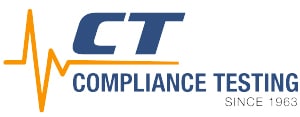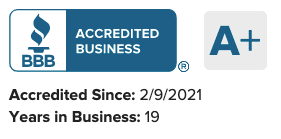Compliance Testing FAQ
What does FCC compliant mean?
An FCC compliant device follows the rules and regulations the FCC has laid down. The Federal Communications Commission is an independent agency of the USA government that governs a wide range of communication devices and electronics that emit radiofrequency. As per the FCC standards, FCC compliant devices should not radiate at frequencies that harm and interfere with the surrounding environment, people, and equipment. FCC compliance helps ensure the electronics and communications devices that form part of our daily lives are working as intended and safely and sustainably.
Which of my products need compliance testing and FCC certification?
In general, FCC certification is required for the electronic device that oscillates above 9 kHz. Additionally, any radio frequency equipment produced, sold, or distributed in the USA must have FCC certifications. Manufacturers that introduce their products to the market without the appropriate approval risk monetary fines and product recall. The following types of devices often require FCC certification:
- Electronic products
- IT equipment
- Power adapters
- Electromagnetic compatibility products
- Bluetooth devices
- Radio and telecommunications terminal equipment
- Wireless local area networking equipment
- Garage doors and openers
- Wireless medical telemetry transmitters
- Land mobile radio transmitters
- Remote control transmitters
- Equipment and protective systems designed for use in potentially explosive atmospheres
Generally, the products that need FCC certification are divided into two classes:
Class A: Intentional radiators of radiofrequency: These are products that must broadcast radiofrequency energy while in operation
Class B: Unintentional radiations: These products have the potential to create and broadcast radio signals as a by-product of their operation
What are the FCC testing requirements for products?
The FCC provides three options for device approval under the EMC directive. These are verification, certification, and declaration of conformity. The option for approval for your product is determined by your product type and the power of radiofrequency emission.
Verification: Verification Testing is designed for Part 15 devices or electrical products, including Class A or Class B digital devices (not PC-related) and Class B external power supplies. Class A devices are commonly used in industrial, engineering, and commercial settings. On the other hand, the Class B products are for consumer purposes.
Manufacturers producing these devices can carry out these tests at a non-accredited test center. The main goal of the verification tests is to determine the amount of radiofrequency energy emitted by the device. Manufacturers are also required to maintain updated records and files of the product test’s reports and documentation.
Declaration of conformity: The declaration of conformity testing procedure tends to be stricter than the verification testing. This process is required for all Part 18 electrical devices, including personal computers and PC peripherals. The FCC regulations require manufacturers to perform these tests only at ISO Guide 17025-accredited test centers.
The main goal of a declaration of conformity test is to ensure a product expels a radiofrequency energy amount that meets the relevant FCC’s technical requirements. A product that meets FCC complaint requirements will have an FCC marking. However, manufacturers are still required to maintain a file containing their product’s test reports and documentation. In addition, they are also needed to create a Declaration of Conformity that states that all the information in the documentation file is accurate and up to date.
Certification testing: The FCC product certification is the most stringent and most detailed of the three tests. Certification testing is designed for electrical products with a higher risk of interfering with other products, signals, and emergency information. These devices include Bluetooth devices, intentional radiators, WLAN, and more. The FCC requires manufacturers of such devices to test their products only in accredited test institutes such as Compliance Testing. Products deemed compliant and meets all relevant FCC’S technical requirements must feature an FCC ID on their label.
How can I obtain an FCC certification for my product?
Obtaining an FCC certification can be a daunting task. In 2015, the FCC made changes to the certification process. As a result, they no longer accept direct applications for certification. The application for certification has to be presented through an accredited TCB (Telecommunications Certification Body).
If you want to sell or distribute products using radio spectrum in the United States, Compliance Testing can help certify your product for quick market access. Compliance Testing is an ISO 17065:2012 certified TCB and is recognized by the FCC to accept applications for certification on its behalf.
Is the FCC mark mandatory for all devices?
The FCC logo or mark is a voluntary mark put on electronic products manufactured or sold in the USA. The mark indicates the electromagnetic radiation the device is emitting is below limits specified by FCC and that the supplier followed the supplier’s Declaration Conformity requirements. Previously, the mark was required on all devices classified under part 15 and part 18 of the FCC regulations. However, as of November 2017, the mark was made optional.
What does CE test for?
CE tests are carried out on products to determine whether they meet EU safety, health, and environmental protection requirements. The CE certification is required for a range of products manufactured in any country across the globe and intended for the EU market. The products that require a CE mark include:
- Equipment and protective systems that are specifically designed for use in potentially explosive environments
- Eco-design for energy-related products
- Cableway installations designed to carry personas
- Appliances burning gaseous fuels
- Active implantable medical devices
What is the difference between FCC, CE, and UL?
The FCC certification is required for radio frequency devices in the United States. On the other hand, the CE is a compliance scheme imposed by Europe. In the United States, the UL mark confirms a product or material meets safety standards as verified by third-party testing. In European countries, a UL mark signifies a product complies with European Norms.
How much does the CE mark cost?
The cost of CE certification can differ from one product to another. There are far too many variables involved that make determining the exact price an impossible task. The process is affected by the type of certification procedure that applies to a given product and whether a company can do a few or all of the conformity assessments. However, generally, the price ranges from $64 to $64,000.
Do FCC certifications expire?
Once you receive the Telecommunication Body (TCB), the certification is considered permanent and thus does not expire. As such, an unaltered product will not need recertification in future productions.
How long does it take for my device to receive FCC approval?
The average industry time to get an FCC certification is anywhere between 8 to 12 weeks. To make this process quicker, FCC mandated some private companies to carry out tests and issue the certifications on their behalf.
Compliance Testing’s Telecommunication Certifications Body (TCB) can expedite this process by leveraging modern technologies that ensure you receive your certificates within 1 to 2 weeks.
Does FCC regulate cell phones?
The Federal Communications Commission (FCC) shares regulatory responsibilities for cell phones with the FDA. Essentially, the FDA provides scientific input and expertise to FCC while the FCC sets the limits on the emissions of radiofrequency energy by cellphones and other wireless products. Additionally, the FDA provides information for the public on the radiofrequency energy emitted by cell phones.
How does FCC enforce regulations?
The FCC leverages its Enforcement Bureau to enforce the Communications Act and the Commission’s rules and orders. The FCC initiates investigations and takes appropriate action if a violation is determined. If a violation is established, the FCC may propose a penalty through a Notice of Apparent Liability for Forfeiture. The notice details a party’s legal violations and the proposed penalty. You can view a list of recent FCC fines and legal actions for non-compliance here.
What is EMC/EMI testing?
Electromagnetic compatibility (EMC)/ electromagnetic interference (EMI) testing is an integral part of electronic devices’ design and manufacturing processes. Several regulatory bodies such as the FDA, FCC, and ISO have specific limits regarding the emissions that an electronic device has to emit. The EMC (electromagnetic compatibility) testing ensures the device meets reliability and safety standards that ensure it will not harm users nor interfere with the operation of other equipment or fail to operate as intended due to interference from other equipment’s emissions. Failure to pass the EMC compliance testing can result in fines and product recalls.
What are the EMC/EMI testing applications and standards?
EMI/EMC testing is part of the product development process, with testing being a mandatory requirement in most markets. Some of the most common applications for EMC testing include:
- Industrial, scientific and medical equipment
- Medical electrical apparatus
- Vehicles, boats, and internal combustion engines
- Components and modules on board vehicles
- Information technology and telecommunications equipment (ITE)
- Professional audio/video/multimedia equipment
- Electrical devices, household appliances, and tools how much does EMC/EMI compliance test cost
- Fluorescent lamps and luminaires
- Military equipment and systems
What is the cost of an EMC/EMI compliance test?
A full compliance test in a certified lab can be costly. The cost can range from $1,000 or more than $20,000 per submission, depending on the number of countries to be covered and the type of device.
How long does it take EMC testing to take?
EMC compliance testing may take up to two weeks to complete. However, this doesn’t include the time it takes to get a product into the test queue. At Compliance Testing, we leverage modern testing labs and highly experienced staff to expedite the EMC testing and certification for your product to hit the markets sooner.



